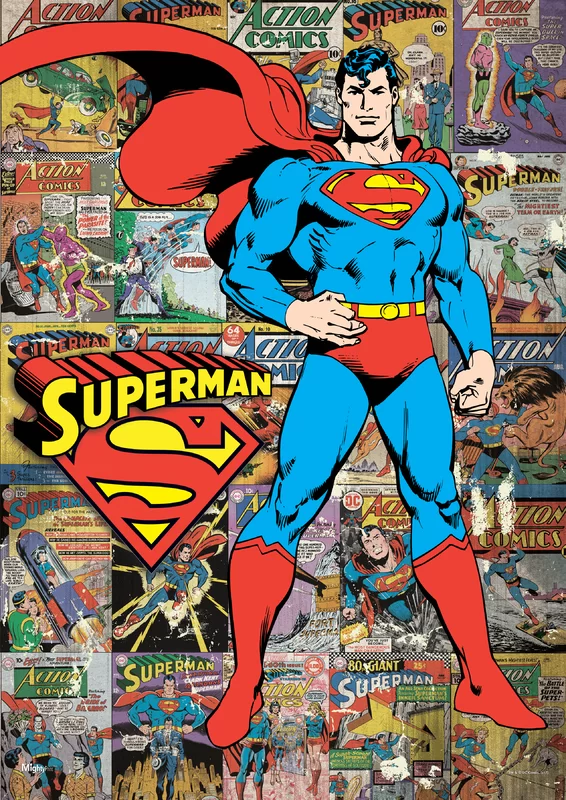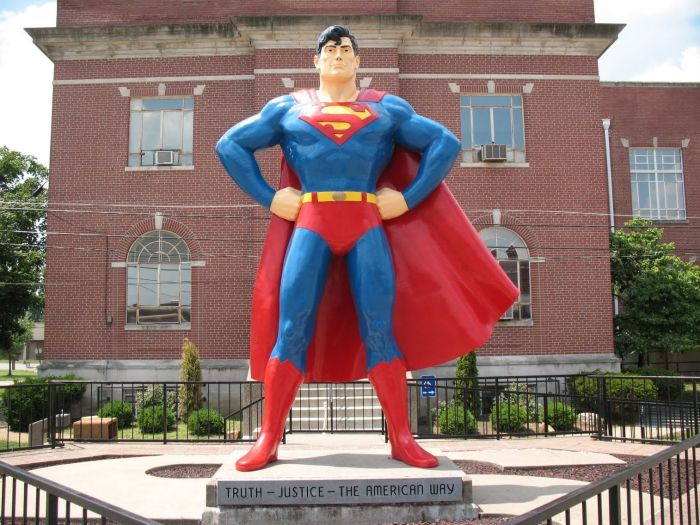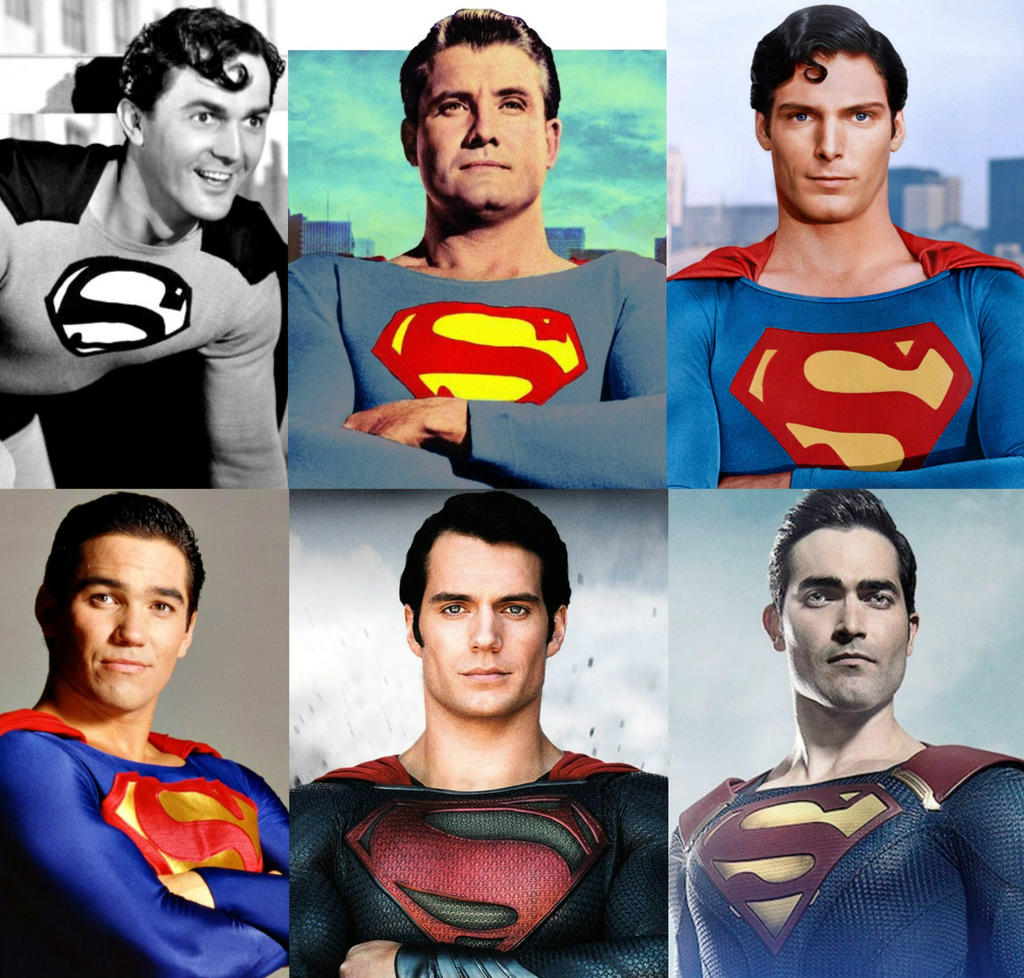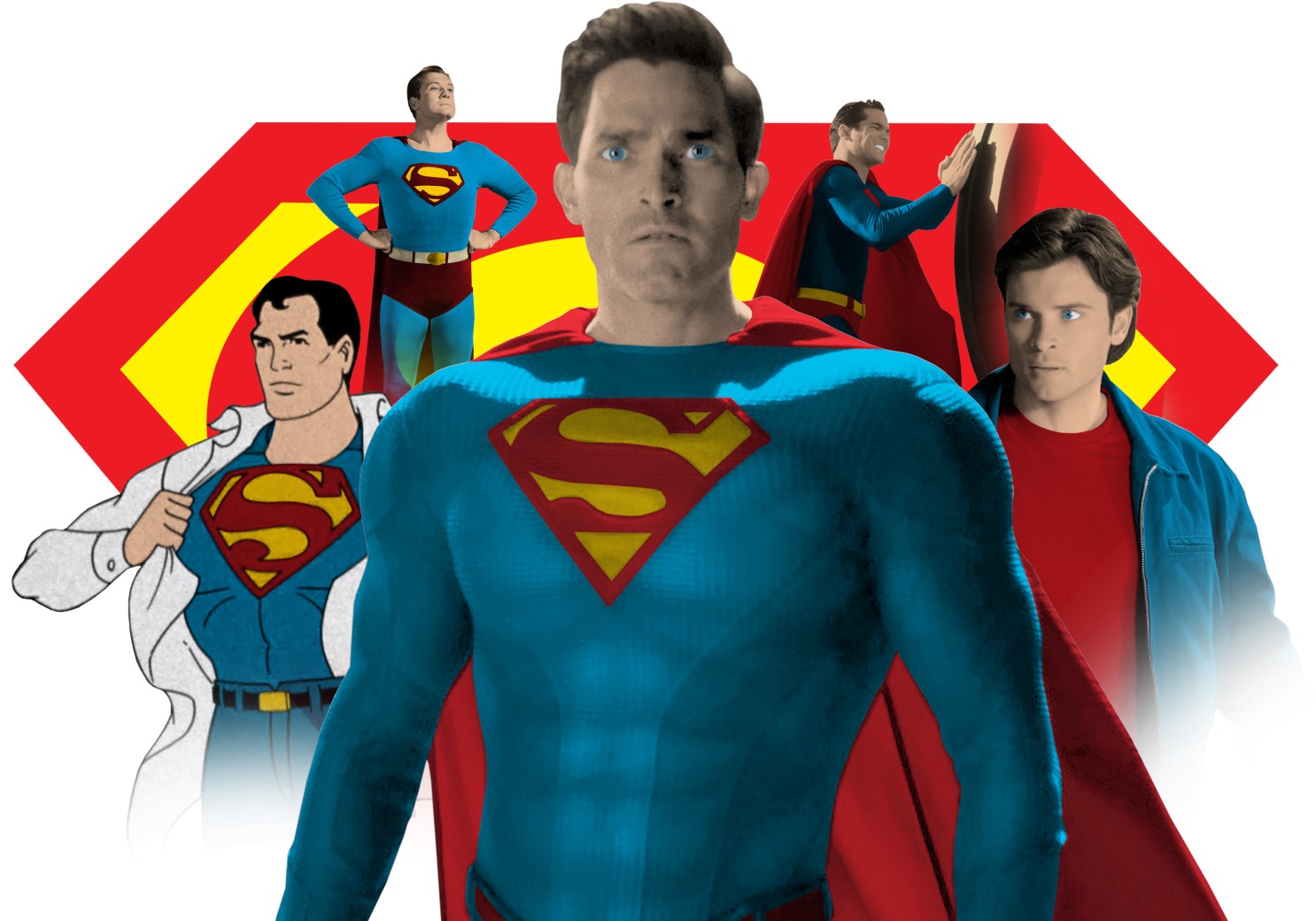
|
|
Superman: IV - The Quest for Peace

The Daily Planet is acquired in a hostile takeover by entrepreneur Alan Warfield who intends to take it in more exploitative tabloid directions. His daughter Lacy is attracted to Clark Kent's guileless ways. When a young schoolboy writes to Superman asking him to do something about the nuclear arms race, Superman is troubled and eventually decides it is his duty to his adopted planet to intervene. And so he gathers all the nuclear weapons in the world and throws them into the sun. However Lex Luthor, escaped from prison again with the aid of his nephew Lenny, attaches a lock of Superman's hair to one of the missiles and this reacts in the sun to create Nuclear Man, a solar-powered creation capable of destroying Superman.
Producers Alexander and Ilya Salkind had had great success with their lavishly produced adaptations of the comic-book legend, Superman (1978) and Superman II (1980). But with their subsequent entries in the series, Superman III (1983) and Supergirl (1984), the Salkinds' pushed the series in a disastrously campy direction. Both Superman III and Supergirl were box-office flops. With the exception of the Superboy tv series (1988-90), the Salkinds' sold their interest in Superman off to Israeli-born, American-based producers Menahem Golan and Yoram Globus and their Cannon distribution chain. During the 1980s Golan-Globus were responsible for numerous ninja and Chuck Norris action films, a whole host of Death Wish sequels, the quite terrible likes of Hercules (1983) and King Solomon's Mines remake (1985), and one great film, Runaway Train (1985).
Golan and Globus managed to entice Christopher Reeve back to the role, with Reeve agreeing so long as he had story input this time. It was he that devised the film's anti-nuclear message. Golan-Globus also persuaded Gene Hackman to come back on board once again, after Hackman had refused to return to shoot more scenes for Superman II over the Salkinds' firing of director Richard Donner, as well as Margot Kidder, whose role in Superman III had all but been written out because she had been spoken out in the press about her disagreement over Donner's firing. The director this time was Canadian Sidney J. Furie, who'd made such films as The Ipcress File (1965) and The Entity (1982).
Superman IV was a big flop. But it is not an uninteresting entry and is at least better than the previous two Salkind entries. Immediately noticeable is the dispensing with all the camp that dogged the previous two films - with the exception of the cursory addition of Jon Cryer as Luthor's excrutiating comic relief nephew. In its place the film attempts to tell a human story. There are some often moving scenes like where Lois tells Clark of her feelings about Superman, unaware that they are one and the same. Or the scenes where Superman stands up before the UN to say Earth is his home too and at the end of the film returns to say he has realized humanity must deal with its problems in its own time, scenes which bring a surprising maturity to the series. (The introduction of the yellow sun theory of Superman's powers show the writers have been paying more respect to the comics too). Reeve gives another fine performance, although he is looking decidedly less than super in physique and the whole bumbling Clark schtick gets really overplayed to the point of irritation. There's quite a cute scene where Lois and Lacy go on a double-date with Clark and Superman. It's nice to see the comic-book being treated with respect again.
Unfortunately the film has an equal degree of bad plotting. The film's biggest black mark is the character of Nuclear Man. The character is really the equivalent of the comic-book character of Bizarro Superman - something the screenwriters should have gone back and studied. What is particularly laughable about the character is that when he comes out of the sun forged out a lock of Superman's hair, he is not only brought to life with a cape and costume but one that is also emblazoned with the letter 'N'. With equally indifferent regard, characters seem to have no trouble not only talking but also breathing without oxygen in space. The film also copies II in throwing in a superfluous scene where Superman reveals his secret identity to Lois, takes her on a flight through the skies of Metropolis, before giving her another big cop-out amnesia-inducing magic kiss.
The bad plotting is matched only by the exceptionally shoddy level of effects work - Superman looks pasted over the screen whenever he is flying. Part of the problem here is that just prior to shooting Golan-Globus slashed the budget in half, forcing the drastic curtailing of much of the film's scope. Furthermore a reported 40 minutes were cut from the film following an initial preview screening. Somewhere in this, the film lost the entire character of an earlier version of Nuclear Man played by Clive Mantle. Nevertheless the film, despite its rather shoddy level of effects, at least has a conceptual ambitiousness that many of the other series entries didn't in scenes with Superman unwinding twisters, plugging volcanoes, rebuilding the Great Wall of China after it is damaged by Nuclear Man and even moving the entire orbital path of The Moon.
The screenwriting team of Lawrence Konner and Mark Rosenthal went onto write the scripts for a number of other genre films, including the Stephen King adaptation Sometimes They Come Back (1991), Star Trek VI: The Undiscovered Country (1991), The Beverly Hillbillies (1993) and the remakes of Mighty Joe Young (1998) and Planet of the Apes (2001).




